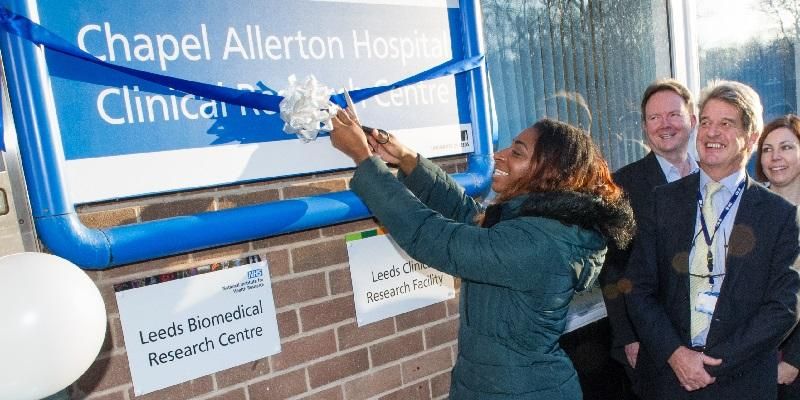
A multi-million pound investment has secured the future of a joint University and NHS research centre specialising in rheumatology, musculoskeletal diseases and joint replacement.
The research facility at Chapel Allerton Hospital has been recognised as a Biomedical Research Centre by the National Institute for Health Research (NIHR) – and comes with £7million of research funding from NIHR.
There are just 20 NIHR Biomedical Research Centres in the UK, and the Leeds team is the only one specialising in musculoskeletal research.
The centre is led by Professor Paul Emery, whose research publications in the field of rheumatology are the most cited in Europe.
The Leeds Biomedical Research Centre is a great asset to my hometown of Leeds and will bring discoveries which achieve real long-term benefits to patients locally, nationally and across the world.
At the launch, Professor Emery explained the centre’s priorities, and how its research would support patients.
He said: “In the future our research will focus on two very important areas, namely preventing autoimmune diseases, with rheumatoid arthritis as the prime example, and improving treatments and outcomes for osteoarthritis. This should improve the lives of millions in the UK and beyond.”
Professor Emery said through increased research, academics would develop and evaluate individually targeted, cost-effective therapies which would improve quality of life for musculoskeletal patients.
In the longer term, Professor Emery said the goal was the early diagnosis and prevention of musculoskeletal disease and reduction of risk factors to improve outcomes.
The centre was officially launched by 2016 Paralympics gold medal winner Kadeena Cox MBE.
She said: "It is good to see this life changing research getting the recognition it deserves.
“The Leeds Biomedical Research Centre is a great asset to my home town of Leeds and will bring discoveries which achieve real long term benefits to patients locally, nationally and across the world.”
Global impact on patient care
A precursor to the new centre, also funded by the NIHR, secured more than £100 million in external funding since 2008, instigated more than 140 research projects and published over 1,000 peer-reviewed papers.
The team’s output has had considerable global impact on patient care through developing innovative joint replacement technologies and in championing the importance of early intervention in rheumatoid arthritis.
The £7million funding from the NIHR will allow the team to continue the much needed research well into the future.
Musculoskeletal conditions, estimated to affect one in six people in the UK, are the single most common cause of chronic pain and disability.
Musculoskeletal conditions include inflammatory arthritis (such as rheumatoid arthritis, psoriatic arthritis and ankylosing spondylitis), connective tissue diseases (such as scleroderma and lupus), and osteoarthritis.
Further information
The picture shows Kadeena Cox cutting the ribbon outside the NIHR Leeds Biomedical Research Centre.
For media enquiries email the University of Leeds Press Office at pressoffice@leeds.ac.uk